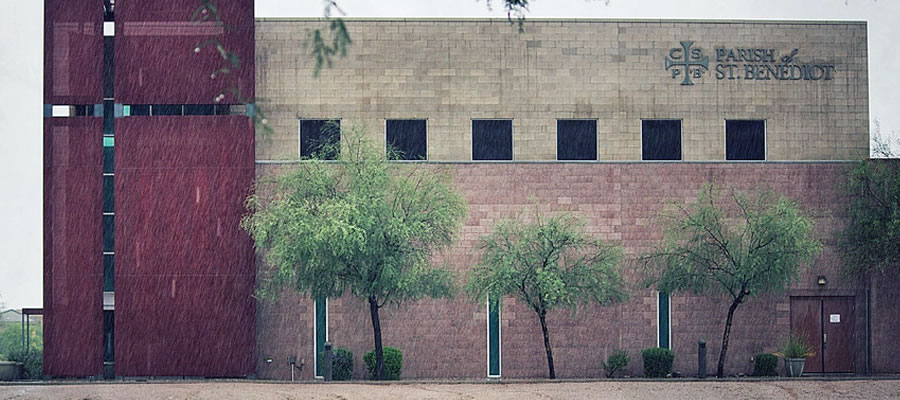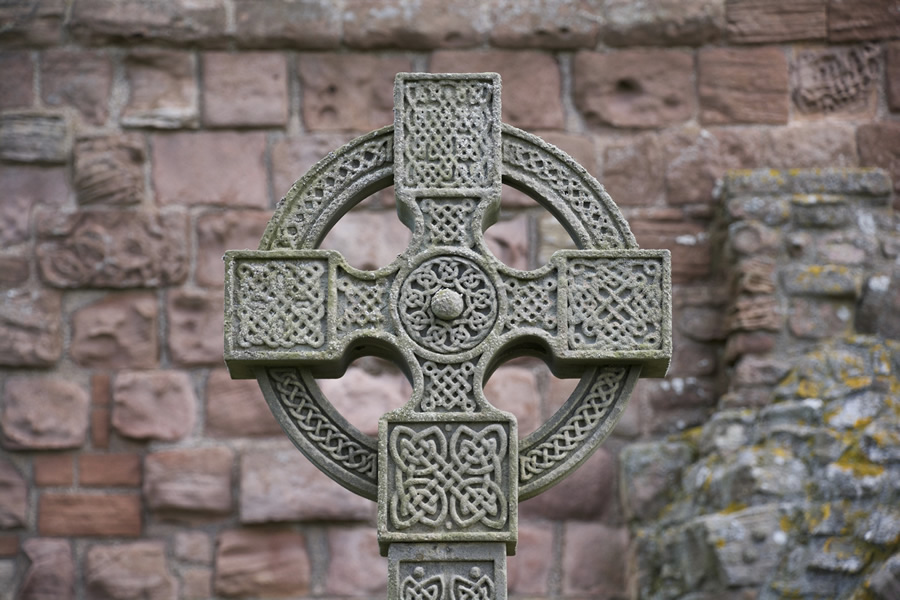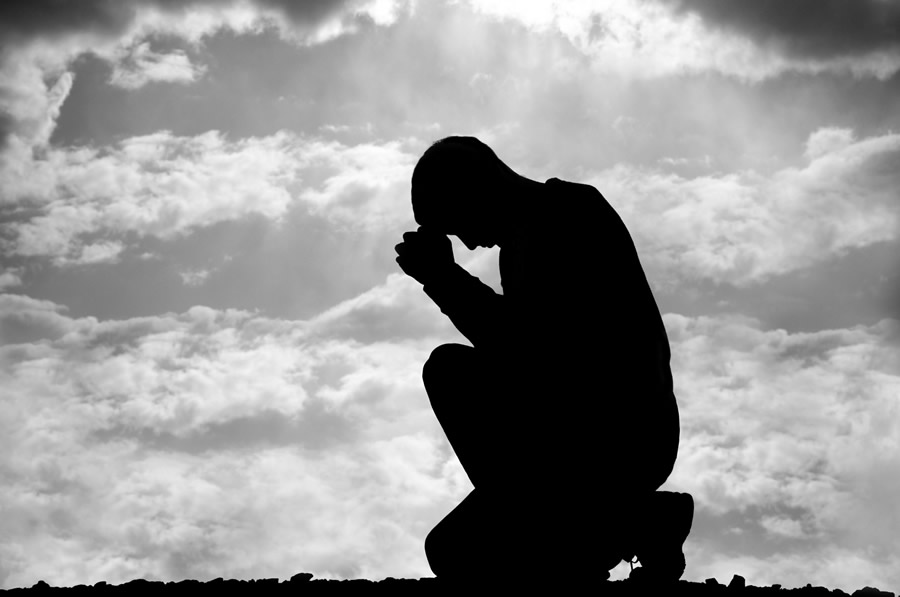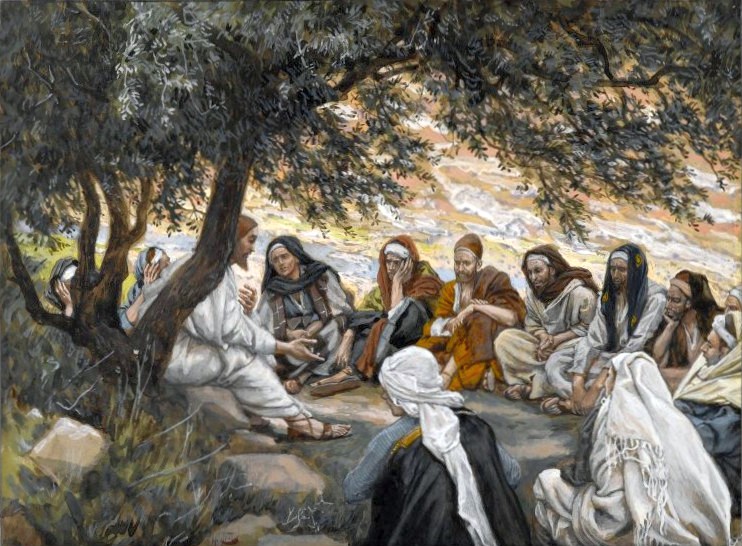
Be Vigilant at All Times...
11-28-2021Weekly ReflectionFr. Manasseh Iorchir, VCWelcome to the First Sunday of Advent and the beginning of “Year C,” the new Liturgical Year. The season of Advent begins the Liturgical Year and has its origins in the early Church as a short period of intense preparation for the celebration of the Nativity of the Lord, also known as Christmas. Advent slowly came to be structured into four Sundays with proper readings and prayers. It is now a season of devout and joyful expectation as we recall the first humble coming of the Lord at Bethlehem about two millennia ago. We are invited to prepare our spiritual selves in joyful expectation of Christ’s promised second coming in glory at the termination of time. This is well-expressed in the Scripture readings, in the prayers, and in the two parts into which Advent is divided.
READ MORE
Thanksgiving Week
11-22-2021Weekly Flocknote MessageFr. James Aboyi, V.C.I wish you and your loved ones a Happy Thanksgiving “in advance.” We thank God that, with the low rate of COVID this year, we look forward to celebrating Thanksgiving in a “normal” way with our families. As we all know, the Thanksgiving celebration is not a Church Liturgical celebration such as a feast day or solemnity. However, it is good to note that we Christians do celebrate Thanksgiving differently from nonbelievers. While we celebrate Thanksgiving by thanking God and acknowledging that all we have and all our blessings come from Him, non-believers may not involve God in their Thanksgiving celebration.
READ MORE
Testify to the Truth
11-21-2021Weekly ReflectionFr. Manasseh Iorchir, VCThe Solemnity of Jesus Christ, King of the Universe was instituted in 1925 by Pope Pius XI for the Roman Rite of the Catholic Church as the Church’s response to growing nationalism and secularism that plagued society at that time. In his encyclical, “Quas Primas,” the Vicar of Christ recognized that these related societal ills would breed erroneous practices, inspire despair and cause increased hostility against the Church. The universal Church celebrates this Feast on the last Sunday of each liturgical year to remind the faithful that Christ’s reign is universal and enjoys permanent duration; nations, governments and philosophies however, are ultimately transient.
READ MORE
Congratulations!
11-15-2021Weekly Flocknote MessageFr. James Aboyi, V.C.Congratulations on our groundbreaking event last weekend. What a historic day for our parish community. I thank everyone for your prayers and support that made it possible for us to reach this great milestone. My special thanks to Bob Prezkop and Deacon Ed for their great leadership of the Building Committee and the transition process. Thanks also to Lani Gore and members of the Events Ministry for coordinating the reception. My special thanks to our parish staff for working so hard behind the scenes to ensure that every detail was taken care of; to Eamonn and Karen and members of the Building Fund Committee; to our SJB school community, the Finance Council, Parish Council, and everyone who helped with planning the event.
READ MORE
"Know That He is Near"
11-14-2021Weekly ReflectionFr. Manasseh Iorchir, VCThe calendar year is coming to an end as we are in November, its penultimate month. The current liturgical year is also about to be completed. Next weekend, we shall celebrate the Solemnity of Our Lord Jesus Christ King of the Universe, the Solemnity that marks the end of a liturgical year giving way to a new one. The readings of today reflect the mood of the liturgical “subseason”, they speak of the anticipated end of time and the judgement of humanity that would follow.
READ MORE
At the Threshold of the Groundbreaking
11-08-2021Weekly Flocknote MessageFr. Anthony Okolo, C.S.SpFinally, the long-awaited Groundbreaking Ceremony is now just hours away. I am so excited and looking forward to it. I invite you and your family and friends to come and join us to witness this historic moment for our St. Benedict parish community. Everything is now ready and set for the event, thanks to the incredible teamwork of our Building Committee, Event Committee, Parish Staff, and volunteers who worked so tirelessly to ensure that every detail of the preparation is addressed. We anticipate beautiful warm weather throughout the day, and a good turnout for the event.
READ MORE
"The Jar of Flour Shall Not Go Empty..."
11-07-2021Weekly ReflectionFr. Manasseh Iorchir, VCExperience has shown that the most generous people are not usually the wealthiest. King Ahab had married Jezebel, a foreigner who brought with her a foreign god Baal that corrupted Israel with idolatry. In response, Yahweh commissioned the prophet Elijah to predict extreme drought in Israel until God would command rain to fall. Israel was scourged with drought which naturally brought famine, and soon the prophet himself needed nourishment. So God directed him to Zarephath where he met a widow at the city gate. The prophet requested water. As the widow left to fetch this now scarce yet essential commodity, he added that he would appreciate some bread as well. The widow reviewed her already precarious situation: she had only a handful of flour left in her jar and a little oil, she had in fact been collecting sticks for firewood to make the last meal for her and her son, beyond that she saw only death. The prophet encouraged her to make the sacrifice prophesying, “the jar of flour shall not go empty, nor the jug of oil run dry, until the day when the Lord sends rain upon the earth.” She did as Elijah requested, and if we read beyond the text of our first reading, we find she never lacked nourishment until rain finally came.
READ MORE
The Closing Mass
11-01-2021Weekly Flocknote MessageFr. James Aboyi, V.C.It is hard to believe that we have come to the last weekend before we move out of the existing building to the St. John Bosco Multipurpose Room (MPR) for our weekend Masses. This is a bittersweet historical moment for us. While we are excited about beginning our building project, we also face the challenge of missing the comfort and memory of the existing building.
READ MORE
There is No Commandment Greater than These
10-31-2021Weekly ReflectionFr. Manasseh Iorchir, VCDeuteronomy, one of the first five books of the Old Testament ascribed to Moses, has a record of Moses’ teachings to the emerging nation of Israel on their way to the Promised Land. They had experienced slavery in Egypt and had witnessed God’s mighty redemption when He effected their release from servitude, guided and protected them as they journeyed towards Canaan, and brought them safely close to their promised destination. Moses was getting them ready to enter the land of promise by reminding them of Yahweh’s earned right to their obedience, unfl inching loyalty and faithful love. Moses enjoined Israel to uphold monotheism not only by fearing, loving and obeying God, but by also ensuring that their faith in Him was passed, in all its purity, to their children. The “Shema” (Hear o Israel…..), which every faithful Jew is required to recite a couple of times a day, reminds us not only of our calling to live as God’s chosen people, but also bestows on us the responsibility of passing on this gift of faith to succeeding generations. Our faithfulness to Divine precepts is complete only if we instill the same faithfulness to God in our children.
READ MORE
Annual Finance and Pastoral Reports
10-25-2021Weekly Flocknote MessageFr. James Aboyi, V.C.I will be presenting the Parish Annual Finance and Pastoral Reports for the fiscal year 2020-21 on the weekend on October 30/31. This will include reports on finance, pastoral ministries, sacraments, parish charitable outreach and St. John Bosco School. Please note! Our fiscal year runs from July 1 to June 30. The Annual Report will be presented by the Presidents of the Parish Pastoral and Finance Councils, Frank Polimene and Debbie Smith, at the end of all the Masses. A digital copy of the report will be posted on the parish website. A few copies will be printed and available at the Church vestibule for those who prefer hard copies.
READ MORE
The Gospel this weekend tells the story of the encounter between Jesus and Bartimaeus the blind beggar. We are told by Mark that Jesus was leaving Jericho and a large crowd was following Him and His disciples. By the roadside, on the path Jesus was to walk, was a blind beggar who obviously had heard about Jesus, His message and miracles. He must have decided that this was his opportunity to meet the Messiah and he was not going to let it pass by. But reaching Jesus was a herculean task for a blind beggar. First, he was blind and could not detect with precision who among the crowd was Jesus, or how he was going to navigate his way through this crowd to Jesus, even if somehow he was able to identify Christ. These huddles could deter any blindman from even making an attempt, but not Bartimaeus. He was a man of resilient faith so seizing the moment became his natural decision. St. Mark tells us that Bartimaeus began to cry out, addressing Jesus with His Mesianic title, “Jesus, Son of David, have pity on me.’’ The busybody crowd tried to stop him, for them this beggar was wasting his time and constituting a public nuisance. Bartimaeus persisted and St. Mark tells us Jesus stopped and said, “Call him.” The faith of a poor blind beggar stopped the movement of the “Son of David” and the huge crowd. Faith truly moves mountains.
READ MORE
He Did Not Come to be Served, But to Serve
10-17-2021Weekly ReflectionFr. Manasseh Iorchir, VCAccording to the Gospel of St. Mark, Jesus predicted His passion, death and resurrection three times. He first did so after the confession of Peter at Caesarea Philippi and Simon Peter’s response was to take Him aside and attempt to rebuke Him. The second time was as they passed through Galilee; the apostles could not understand Him, yet they responded by maintaining silence because they were afraid to question Him. The third and final prediction was on their way to Jerusalem. He took His disciples aside and revealed to them what awaited Him in the eternal city. This final prediction shares the same setting with, and in fact precedes, the events in the Gospel of today.
READ MORE
Thank You
10-11-2021Weekly Flocknote MessageFr. James Aboyi, V.C.I thank everyone for their participation in our Parish Information Meeting held on Monday, September 27. My special thanks to the leaders and members of the Building Committee, Building Fund Committee, Finance Council and Parish Staff who helped to organize the meeting. The questions, suggestions, and feedback we received during and after the meeting were very helpful. Please give us a call in the parish office (480.961.1610) or send an email to office@stbenedict.org if you have any additional questions, suggestions or need a clarification.
READ MORE
For All Good Things Are Possible
10-10-2021Weekly ReflectionFr. Manasseh Iorchir, VCEveryday, life requires us to make choices in the face of so many options. To make some choices, one needs to forgo some other options competing for our attention. This weekend’s readings are centered on the choices we should make, the options we have to renounce in order to make the right choices and the consequences that arise from the choices we make. The book of Wisdom presents its author (presumably king Solomon) recalling how in the midst of so many attractive mundane options, he chose wisdom and renounced material treasure. For him, wisdom was his preferred choice because “her radiance never ceases”. The consequence of his choice here is that he received along with wisdom even those things he did not ask for. This reminds us of Jesus admonishing his disciples to “seek first the kingdom of God and His righteousness, and all these things will be given you besides.” (Matthew 6:33).
READ MORE
What God Has Joined Together, No Human Being Must Separate
10-03-2021Weekly ReflectionFr. Manasseh Iorchir, VCThe Readings of this Sunday evoke a serious discussion on marriage and family. In our time, marriage and family have become controversial topics of discussion, especially when we seek to understand them without reference to God’s will as found in Sacred Scripture. The Readings of today discuss the origin, intention and purpose of marriage as designed and instituted by God, Himself. Genesis 1 and 2 present the Story of Creation; God created everything that would be needed by human beings, and then made Adam out of clay breathing His Spirit into him to animate him. After Adam was presented with all of God’s creation to name and have, God saw that Adam was not happy and satisfied because none of the other creatures were like him. In Genesis 2:18, God decided that “it is not good for a man to be alone”, so God fashioned one who would be like Adam, from Adam and corresponding to Adam in dignity, to be his “helper”. When Eve was made, Adam, in great delight and gratitude, spoke the first recorded words of a human person in the Bible: “this one, at last, is bone of my bones and flesh of my flesh, this one shall be called woman”. The author of Genesis concludes today’s scripture text with a theological explanation for the unity and indissolubility of every validly contracted marriage.
READ MORE